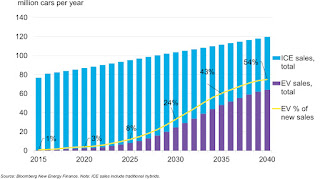A great adventure, good friends, hospitality, inspiration and ideas - the feedback from this years Recyclers Road Trip to the ARA Convention included all of these comments
This year 19 recyclers from Holland, New Zealand, Poland and the United Kingdom met in Jacksonville on their way to Orlando for the 75th Automotive Recyclers Association Annual Convention and Expo.
Marta Witkowska, Vice-President of FORS wrote “The Road Trip 2018 was a great adventure. We have spent three days visiting ATF’s with different ways of treating ELVs. We were impressed with the impetus of Central Florida Pick & Pay (CFPP) in Orlando (1000 vehicles accepted monthly!) and how perfectly All Pro Used Parts & U Pull It and Brandon Used Parts were organised. We enjoyed many ideas helping to develop sales, like the idea of separate area for VIP clients and promotional days for spare parts.
We were joining the Road Trip for the third time and we’ve noticed that the environmental obligations for Authorised Treatment Facilities in the States are becoming more demanding. In Poland oil separators and airtight surfaces are, among others, the minimal obligations for ATFs. We are not able to keep ELVs on unprotected ground, that always surprises us while visiting ATFs in different States and the way ATF’s operates in the USA, we find much more practical.”
Scott Green from Pick-A-Part in New Zealand added “We came away inspired and enthusiastic to implement some new ideas. There was something to glean from each of the yards we visited and we wish to commend everyone we visited for their willingness to share their knowledge of our industry. We highly recommend the road trip to everyone and we look forward to the next one.”
The road trip included opportunities to share food together and this year’s restaurant was The Melting Pot where everyone enjoyed three different types of Fondue and far too much food!
Go-Pull It, Greenstar Recycling, Central Florida Pick & Pay, All Pro Auto Parts, Brandon Auto Service and Cocoa Auto Salvage all welcomed the road trip and treated us like friends, proudly taking us around their facilities, sharing lots of information and answering every question put to them.
Joanna Dabrowska for the Polish group highlighted the differences between the US and Poland “From our point of view, despite the fact that each yard was somehow different from other ones, the organisational basis was similar and different from what we can see in Poland. Most yards were focused on second use of spare parts while the price of scrap was not of significant importance. Also all of the yards were organised as self-service yards (or semi self-service yards), where the ELV’s are stored for 60 to 90 days. This is different from Polish situation, where self-service yards are not popular. In most yards in Poland, full-service is practiced, maybe because of lack of free space.”
Marta Witkowska continued “We should learn from American ATFs how to effectively sell, how to manage with auctions and how to constantly raise volumes of sale. Americans are absolute masters in establishing cooperation among each other and a hub and spoke sale systems. That’s what we try to develop in Poland.”
I would like to thank every recycler that opened the gates of their facilities to the road trip, who welcomed us and shared so much with the whole team, and to the members of the road trip for their enthusiasm, fun and fellowship, and we all look forward to meeting up in 2019 on our way to Charlotte.

































